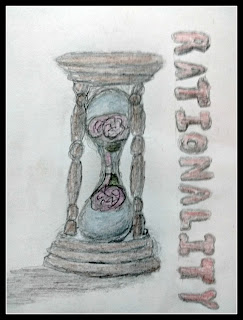Every workplace has their fair share of rational and irrational employees. The degree by which someone is considered rational depends on their internal consistency in making choices that create the most value. Each logical choice leads to higher outcomes that strengthen pathways to goal completion. Organizations that hire rational actors who can align their goals to that of the organizations are more likely to reap the rewards of better decision-making.
Even though it seems like it is rare, not all workplace choices are as rational as we think. All types of dramas and self-seeking behaviors abound that detract from the organizations mission. It doesn't take much to leave a person scratching their head to understand what was going through the person's mind who made THAT decision!
Irrationality in the Workplace:
Decisions that aren't aligned with, or against, the business are suspect to the emotional, financial, and self-seeking desires of the employee. Choices not based on critical thinking skills and proper evaluation of alternatives don't produce optimal outcomes. Where sound logic is needed, other factors take precedence that leads to poor choices and poorer outcomes.
Consider a manager who is frustrated in life and subject to his/her emotional roller coaster. He/She promotes people based an agenda built off a distorted view of the world. The manager reacts emotionally to every challenge in a way that creates a toxic environment. Their internal logic isn't aligned to the needs of the organization thereby further derailing organizational success with each subsequent decision.
His/her behavior is irrational in the sense that it is reactive without true alignment between her needs and that of the organization. Even though the manager consistently makes individual choices, based on some subconscious logic, their choices are derived from a distorted view of the world. There will be chronic dissonance between them and their organization.
Rationality in the Workplace:
Rational actors consistently make win-win choices that maximize their own as well as the firms goals. It would be too altruistic to assume that people choose the firm's goals consistently without considering their own in the process. Most employees will try and find a mesh between theirs and their employers to create maximum advantage.
Organizations are a collective of decisions based on the way in which employees view their responsibilities toward the group. As a bounded rationality all employees should be making decisions that lead to the achievement of the collective goals. The workplace becomes a way of viewing the world where all players seek mutual advantage.
When organizations hire rational employees that consistently choose positive choices that lead to mutual advantages, the internal subconscious logic is successful in creating positive outcomes. Employees that have deeply embedded values will always make decisions that further foster the success of those around them.
The Power of Information:
The ability to choose wisely is based on the information available to the actor. If an inaccurate, false, misleading, or partial information is presented, then it would be unfair to assume the actor has what is needed to make proper choices. The outcomes can be rationalized differently because the information presented tilts toward inaccurate options.
Businesses are collectives of thought and action that lead to high outcomes. According to Choice Theory the results of any social system is based in the aggregate choices of all societal members. Ensuring employees are well informed and able to make solid choices leads to stronger firm performance.
Encouraging Rationality in the Workplace:
Companies should consider the type, amount, and quality of information they are providing to their employees. This can occur formally through official announcements or unofficially through social networks. Newsletters, mission statements, executive communication, values, reinforced objectives, and meetings help employees understand what is expected the optimal choices.
Poor actors that consistently move against company goals and create toxic environments should be removed and their impact minimized. Decisions should have a logical rationale behind them and be based on the values and outcome of the organization. Allowing employees to mesh their and the companies goals help to develop greater alignment of values.
Training key decision makers on how to analyze qualitatively and quantitatively the possible outcomes of their decisions leads to higher levels of strategic formation. We should not assume that experience alone is the greatest determiner of proper decision making. Logic has its own system that when matched with personal experience can create more significant outcomes.
Fell free to share with appropriate attribution. Dr. Murad Abel http://www.academic-capital.net

No comments:
Post a Comment